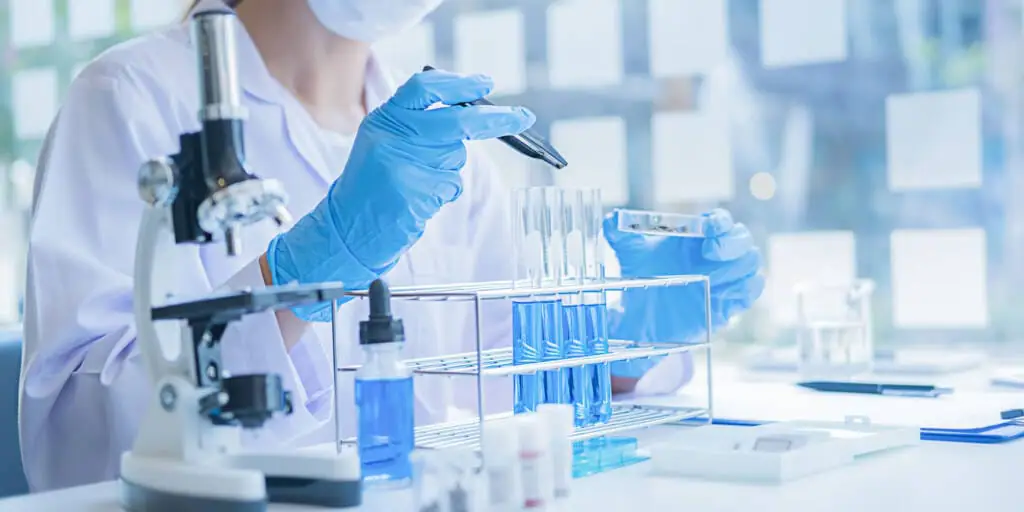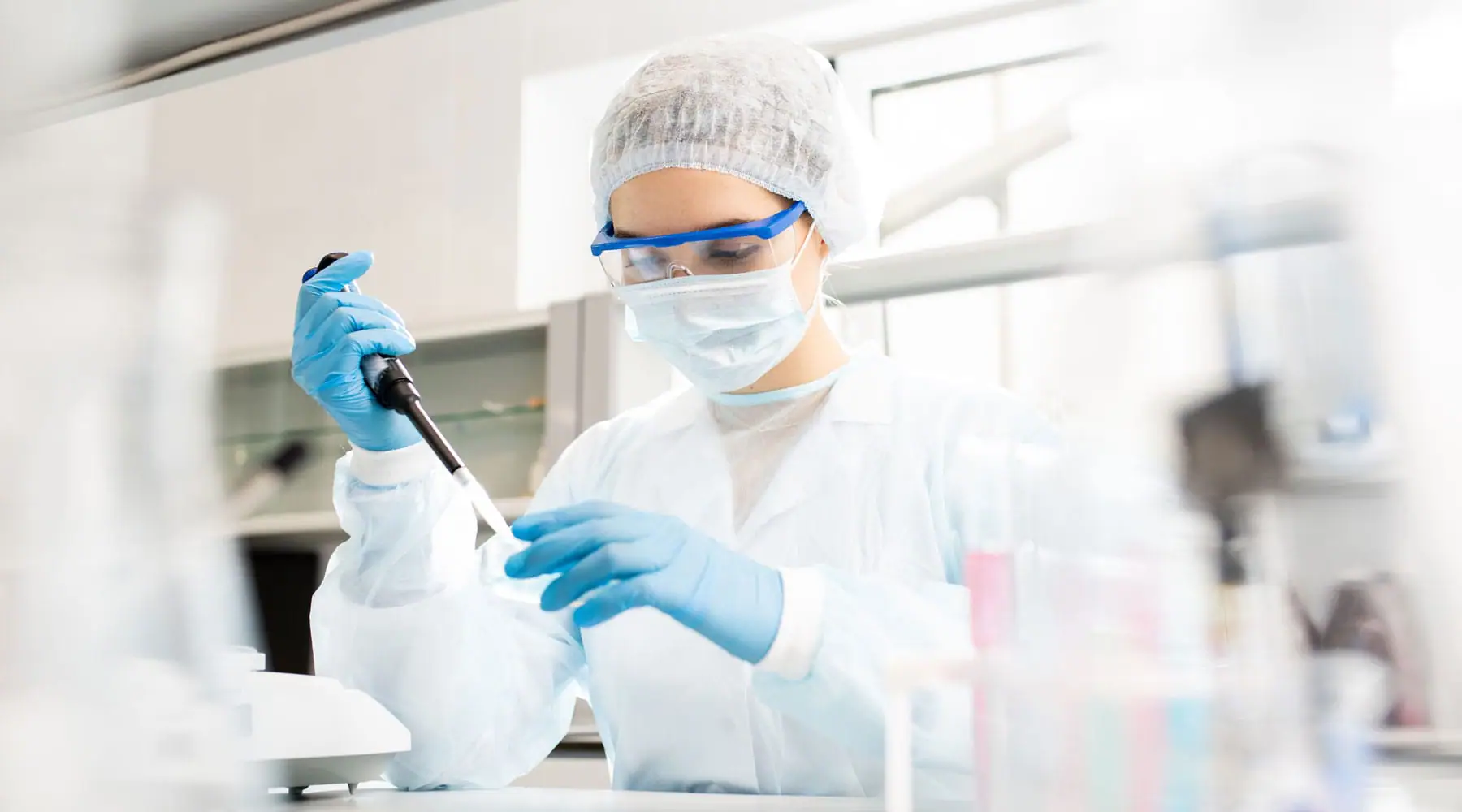At Labworks, we understand the importance of effective laboratory sample management in ensuring accurate and reliable results in research and testing. From sample tracking to sample storage, every step in the sample management process plays a crucial role in the success of laboratory operations. This post explores everything you need to know about laboratory sample management, including the challenges, regulatory requirements, and benefits of using Labworks’ sample management software.
FAQs About Lab Sample Management
What is laboratory sample management, and why is it important?
Laboratory sample management involves the handling, tracking, storing, and retrieving of samples used in research, testing, and analysis. It is essential for maintaining sample integrity, ensuring traceability, and enabling efficient workflows in the laboratory. Proper sample management helps produce accurate and reproducible results and comply with regulatory requirements.
Effective laboratory sample management makes reliable scientific research and testing possible. Good sample management practices ensure the accuracy, reproducibility, and integrity of research results, impacting the validity of scientific findings and the credibility of the laboratory. Whether dealing with biological samples, environmental samples, or other types of materials, proper sample management maintains the quality and reliability of laboratory operations.
In research and testing environments, sample integrity directly impacts the quality and reliability of analytical results.
What are the potential risks and challenges in sample management, and how can they be mitigated?
Some potential risks and challenges in sample management include contamination, misidentification, loss, and degradation. Mitigate these risks by implementing robust sample tracking systems, using proper labeling and barcoding, maintaining strict quality control measures, and providing staff training on sample handling procedures.
Contamination from external sources or cross-contamination within the laboratory can lead to inaccurate results and compromised data integrity. Sample misidentification can result in errors in testing and analysis, impacting the validity of research outcomes. Sample loss can lead to delays, repeat testing, and potential setbacks in research projects. Additionally, sample degradation over time due to improper storage conditions can affect the quality and reliability of analytical results.
To mitigate these risks, laboratories must establish comprehensive sample management protocols that address proper handling, storage, tracking, and documentation of samples. Implementing a robust sample tracking system, utilizing advanced sample management software, ensuring proper labeling and barcoding of samples, conducting regular quality control checks, and providing staff training on sample handling procedures help to prevent and mitigate risks in sample management.

What are the regulatory requirements for laboratory sample management?
Laboratory sample management regulatory requirements and standards ensure the quality, integrity, and traceability of samples and data. Regulatory guidelines often mandate specific procedures for sample collection, handling, storage, and disposal to safeguard the accuracy and reliability of laboratory results. Regulatory requirements for laboratory sample management vary depending on the sample type and industry standards.
Common regulatory requirements for laboratory sample management include proper documentation of sample collection procedures, recording of storage conditions (such as temperature, humidity, and expiration dates), maintaining a chain of custody for samples to track their movement and handling, ensuring data integrity through accurate record-keeping, and complying with safety and ethical standards in sample handling and disposal.
By adhering to regulatory requirements, laboratories demonstrate the reliability and validity of their test results, protect data integrity, and ensure compliance with industry standards and regulations. By following regulatory guidelines for sample management, laboratories can uphold the quality and credibility of their research and testing processes.
How can laboratory information management systems (LIMS) be utilized for sample management?
Laboratory information management systems (LIMS) are crucial in enhancing laboratory sample management processes. LIMS sophisticated software solutions streamline and automate laboratory workflows, including sample tracking, data management, and quality control.
LIMS offers a comprehensive platform for managing sample information, including sample identification, tracking, storage location, and associated data. By utilizing LIMS for sample management, laboratories can improve data accuracy, ensure sample traceability, enhance workflow efficiency, and comply with regulatory requirements.
Critical features of LIMS for sample management include:
- Sample tracking
LIMS provides a centralized database for tracking samples throughout their lifecycle, from collection to storage to disposal. This tracking functionality enables laboratories to monitor sample movements, locations, and status in real-time, ensuring accurate record-keeping and traceability.
- Inventory management
LIMS offers inventory management capabilities to organize and catalog samples based on various criteria, such as sample type, storage conditions, and expiration dates. Laboratories can efficiently manage sample inventory, track usage, and prevent stockouts or overstock situations.
- Audit trails
LIMS generates audit trails documenting sample processing activities, user interactions, and system changes. These audit trails provide a transparent record of sample management operations, facilitating accountability, quality control, and compliance with regulatory audits.
- Automated workflows
LIMS streamlines sample management workflows by automating routine tasks, such as sample accessioning, storage allocation, and data entry. Automation reduces manual errors, accelerates sample processing times, and improves laboratory efficiency.
- Data integration
LIMS integrates with other laboratory systems, instruments, and databases to facilitate seamless data exchange and interoperability. This integration enables laboratories to consolidate sample information, streamline data transfer processes, and improve data integrity across multiple platforms.
Overall, utilizing LIMS for sample management offers laboratories a multitude of benefits. By leveraging LIMS technology, laboratories can optimize their sample management processes, reduce operational costs, and elevate the quality and reliability of their research and testing activities.

How can samples be effectively stored and retrieved in a laboratory?
Proper sample storage and retrieval help maintain sample integrity and ensure sample traceability. Laboratories must establish standardized protocols for sample handling, storage, and retrieval, considering factors such as sample type, temperature requirements, storage duration, and sample volume.
Store samples in appropriate containers, labeled accurately with unique identifiers and organized systematically to facilitate easy retrieval. Store temperature-sensitive samples in climate-controlled environments, and monitor samples regularly for signs of degradation or contamination.
Labworks offers sample management software that enables laboratories to track sample location, storage conditions, and expiration dates, ensuring samples are stored and retrieved efficiently. By implementing sample tracking solutions, laboratories can reduce the risk of sample loss, improve sample traceability, and optimize sample inventory management.
How can sample integrity be maintained throughout the storage and handling process?
Maintaining sample integrity ensures the accuracy and reliability of laboratory results. Improper storage conditions, contamination, mishandling, and inadequate documentation can all compromise sample integrity. To preserve sample integrity, laboratories must implement best practices for sample handling and storage, including:
- Implementing standardized protocols for sample collection, labeling, and storage
- Monitoring storage conditions, such as temperature, humidity, and light exposure
- Regularly auditing sample inventory and conducting quality control checks
- Training staff on proper sample handling procedures and ensuring compliance with protocols
- Utilizing sample management software solutions like Labworks to automate data capture, storage, and retrieval processes
By following these guidelines and leveraging technology solutions such as Labworks, laboratories can maintain sample integrity throughout the storage and handling process, ensuring the validity of their research and diagnostic outcomes.

Manage Laboratory Samples with Labworks
Labworks provides laboratory sample management software solutions. Our comprehensive LIMS software enables laboratories to manage samples efficiently, comply with regulatory requirements, and optimize data management workflows.
With Labworks, laboratories can track and monitor sample status in real-time, automate sample processing workflows, and generate customized reports for data analysis. Our user-friendly interface and customizable features make it easy for laboratory staff to input and access sample data, ensuring accuracy and traceability throughout the sample lifecycle.
Whether you are a research laboratory, clinical diagnostic facility, or pharmaceutical company, Labworks can help you improve sample management processes, reduce the risk of errors, and enhance the integrity of your sample data. Discover how our laboratory sample management software solutions can support your laboratory’s needs. Contact Labworks today!
Effective laboratory sample management is essential for maintaining sample integrity, ensuring data accuracy, and complying with regulatory requirements. By implementing best practices for sample handling, storage, and retrieval and utilizing sample management software solutions like Labworks, laboratories can optimize their sample management processes and achieve reliable research and diagnostic outcomes. Stay organized, stay compliant, and stay ahead with Labworks.



